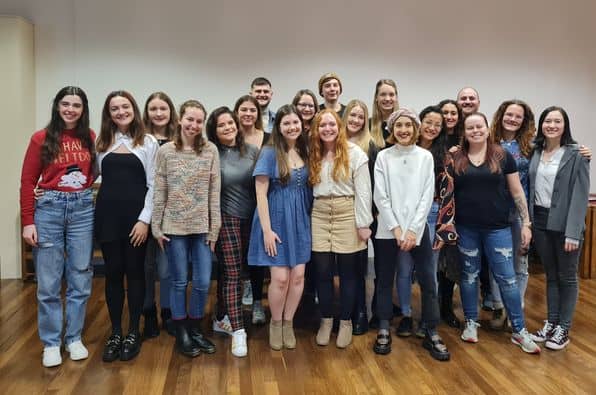 Professor Sir Desmond Rea’s term of office as Chair of the Stranmillis University College (SUC) Governing Body, ended on 31 December 2021. The Governors, Staff and Students would like to thank Sir Desmond for his dedication and leadership as Chair of the Board over the last 8 years. We wish him well and look forward to celebrating his tenure in the near future.
Professor Sir Desmond Rea’s term of office as Chair of the Stranmillis University College (SUC) Governing Body, ended on 31 December 2021. The Governors, Staff and Students would like to thank Sir Desmond for his dedication and leadership as Chair of the Board over the last 8 years. We wish him well and look forward to celebrating his tenure in the near future.
Following an open competition and appointment by the Department for the Economy, Mr Edgar Jardine, who has served as Vice-Chair of the SUC Governing Body from 1 August 2014, took up the position as Chair with effect from 1 January 2022. As a College community we congratulate Mr Jardine on his appointment and welcome him to his new role.
Mr Jardine is a former Chief Executive of the Northern Ireland Statistics and Research Agency. He has also served at senior level in the Office of the First Minister and Deputy first Minister, and in the former Department of Culture, Arts and Leisure and as Interim Chief Executive of the Northern Ireland Policing Board. He was awarded the CB in 2012 for public service.
Since his retirement from the Northern Ireland Civil Service Mr Jardine has served in a number of non-executive roles. He was a member of the Probation Board for Northern Ireland from 2012 to 2018 and of the Education Authority from 2015 – 2020. He joined the NI Policing Board as an Independent Member on 1 April 2020. He is also Chair of the Department of Finance’s Statistics Advisory Committee and serves as an Education Authority representative on the Board of Governors of Dundonald High School.



 At the start of each term, the College is delighted to welcome international students from our partner universities and colleges around the globe. Those students quickly become an integral part of the Stran community, experiencing the Northern Ireland culture, creating long lasting friendships and developing both personally and professionally. Our international students always add a richness and diversity to college life and it is then with sadness and best wishes that we have to say goodbye to them.
At the start of each term, the College is delighted to welcome international students from our partner universities and colleges around the globe. Those students quickly become an integral part of the Stran community, experiencing the Northern Ireland culture, creating long lasting friendships and developing both personally and professionally. Our international students always add a richness and diversity to college life and it is then with sadness and best wishes that we have to say goodbye to them. international students who have been studying with us this semester will remember their experiences of Stranmillis and Northern Ireland fondly and we will see them again in the future!
international students who have been studying with us this semester will remember their experiences of Stranmillis and Northern Ireland fondly and we will see them again in the future!

 A huge congratulations to all of our Graduates from 2020 & 2021 who were finally able to enjoy in-person graduation ceremonies! On December 8, our Winter Graduation enjoyed a welcome return to in-person graduations and, on December 13, our graduates from Summer 2020 and 2021 and Winter 2020 finally had the opportunity to don their graduation robes, enjoy their spotlight on stage and celebrate their achievement with family, friends and academic staff at the graduation garden party.
A huge congratulations to all of our Graduates from 2020 & 2021 who were finally able to enjoy in-person graduation ceremonies! On December 8, our Winter Graduation enjoyed a welcome return to in-person graduations and, on December 13, our graduates from Summer 2020 and 2021 and Winter 2020 finally had the opportunity to don their graduation robes, enjoy their spotlight on stage and celebrate their achievement with family, friends and academic staff at the graduation garden party. To see more of our graduation pics, visit
To see more of our graduation pics, visit 

